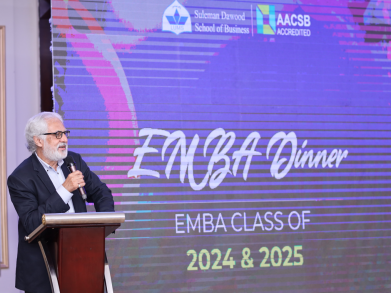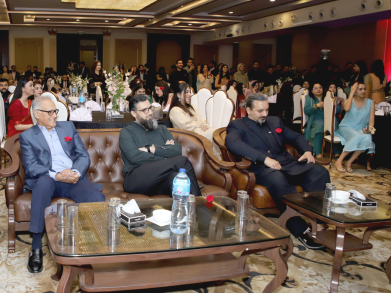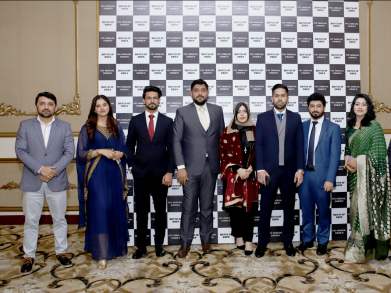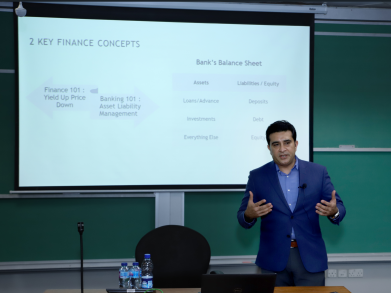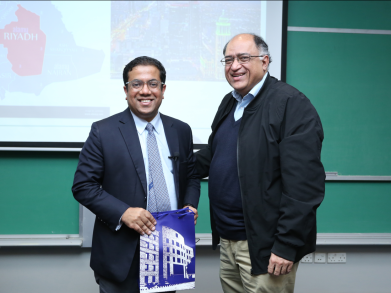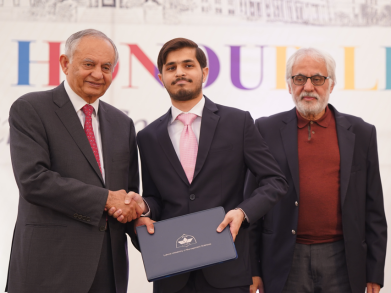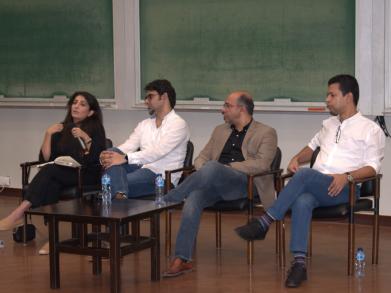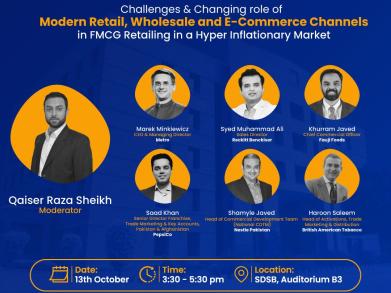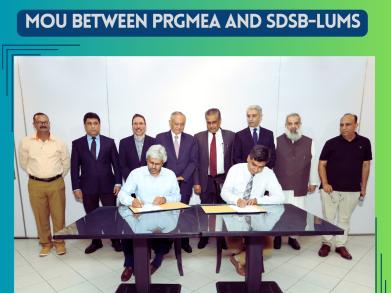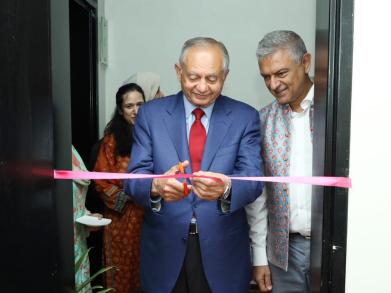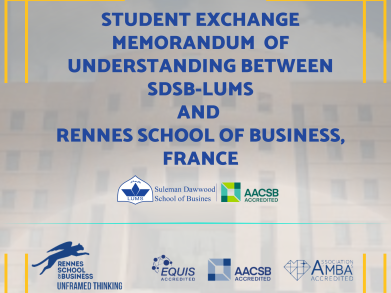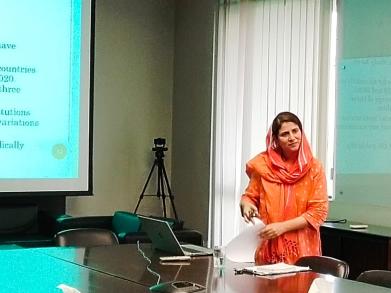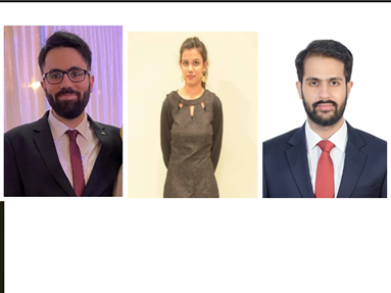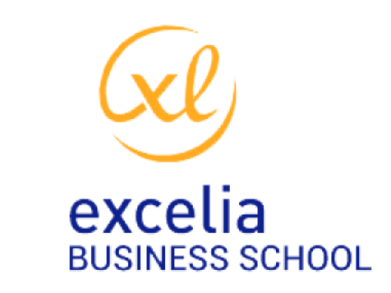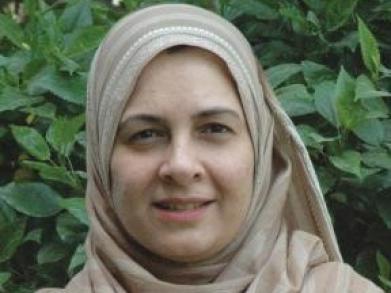SDSB-LUMS Hosts 2nd Symposium on Battery Electric Vehicles in Pakistan
On May 7, 2024, the Suleman Dawood School of Business (SDSB) at LUMS hosted the 2nd Symposium on Battery Electric Vehicles (BEVs) in Pakistan. This event, held in collaboration with the Higher Education Commission (HEC) Pakistan, the World Bank, and the International Finance Corporation (IFC), focused on "Accelerating the Electric Mobility Transition in Pakistan."
The symposium gathered senior leaders, policymakers, industry experts, and key stakeholders to discuss the progress and challenges of electrifying transportation in Pakistan. Topics included the EV landscape in Pakistan, international experiences, best practices, and industry perspectives on demand, supply, charging, and financing. An exhibition showcased EV-related products and services.
Dr. Shakeel Sadiq Jajja, the Chair of the Symposium and Associate Professor at Suleman Dawood School of Business, LUMS, speaking on the scope of BEVs in Pakistan, shared that, “The electrification of transportation is rising in the last few years much more rapidly than before all over the world. The key environmental benefit attributed to BEVs is that they have zero tail-pipe emissions along with the low cost of operation. The environmental benefit is fully harnessed if BEVs are powered through sustainable sources of electricity. At a different level, BEVs provide an opportunity to develop new supply chains and industries which are critical to the future of the economy, such as batteries, robotics and autonomy of vehicles, software, big data and analytics and innovative materials. The Government of Pakistan and businesses in our country should view BEVs as an opportunity for innovation and technological transition in the economy.”
Ms Jen Jungeun Oh, Practice Manager, Transport, South Asia, at the World Bank, shared that “the EV symposium brought together key stakeholders in the EV ecosystem in Pakistan and generated several useful takeaways. Stakeholders agreed that concerted action is needed to catalyse EV adoption in the country, focused first on electric two and three-wheelers and electric buses, given their prevalence and socio-economic importance. Key strategies going forward include strengthening coordination and clarifying the policy environment, reducing capital costs through localisation and aggregation of procurement, particularly for e-buses, and unlocking affordable commercial financing through risk-sharing instruments. The World Bank is committed to partnering with the EV ecosystem on this journey.”
Zeeshan Sheikh, IFC’s Country Manager for Pakistan & Afghanistan, added that “BEVs are rapidly gaining momentum worldwide as advancements in technology and enabling policy environments result in demonstrable financial and environmental benefits for users. Given Pakistan’s energy sector dynamics and climate vulnerability, we see potential and a need for a similar shift in Pakistan. Today’s symposium was an important opportunity to bring relevant public and private stakeholders together to discuss key policy, regulatory and financial solutions necessary for developing a competitive BEV market. Globally, in recent years, IFC has invested over $3 billion in e-mobility related initiatives, and we are committed to drawing on our experiences to support the private sector and the Government of Pakistan in fostering an enabling environment for enhanced adoption and investment in BEVs in Pakistan.”
The event highlighted the commitment of LUMS, HEC, the World Bank, and IFC to fostering innovation and addressing societal challenges through collaboration. By harnessing the collective expertise and insights of participants, the symposium aimed to chart a course towards a greener, more sustainable future for transportation in Pakistan.




